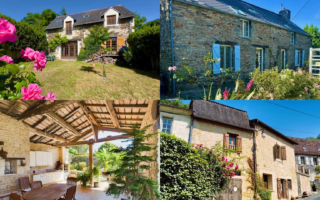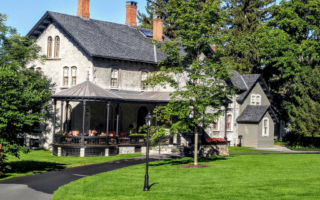The differences between buying a property in France and the UK
How different is the property buying process in France compared to the UK? From the role of the notaire to the completion procedure, here are some of the crucial differences
Matthew Cameron is a Partner and Head of French Legal Services at Ashtons Legal Solicitors
Most people will have some experience of English conveyancing and know how stressful it can be. But how does the property-buying process in France compare? For simplicity, references to England in this article will also incorporate Wales, but not Scotland or Northern Ireland where the process may be slightly different.
1. The role of the lawyer in a property purchase
One of the first things buyers will notice is that there is probably only going to be one notaire involved. In English law, each party must have their own legal representation. The role of the notaire, though, is not the same as that of a solicitor. A notaire is primarily required to ensure that the property is transferred correctly and that all duties are paid on the transfer. The solicitor’s role on a conveyancing transaction will go further than that, to make a deeper assessment of the property to be bought. This is an extra step that a specialist solicitor advising on a French purchase in addition to the notaire should be able to fulfil as well.
_______________________________________________________________________________
Don’t miss
The legal process of buying a French property
What is the role of a notaire?
_______________________________________________________________________________
2. Often the estate agent drafts the property contract
Buyers in France may be surprised to see that the initial contract is not always drafted by the notaire, such that the lawyer overseeing the purchase would not have any involvement in a transaction until the contract is completely and fully binding on both parties. Indeed, quite often it is the estate agent who will draft a contract. Though there is nothing wrong with this, it does mean that without the additional help of a specialist solicitor, a buyer will not have been able to receive any legal advice in advance of the contract becoming binding.
3. The property contracts
In both England and France the process is finalised in two stages: signature of an initial contract (in France generally known as the compromis de vente or promesse de vente), and then a final transfer deed (in France known as the acte authentique de vente). In both cases the initial contract sets out the main criteria and binds the parties into the deal, with the final document transferring ownership.
There are, however, some differences. The final transfer deed in France actually becomes the registered deed, the original of which is retained at the notaire’s office. In England, the actual transfer deed, once registered, bears little or no value; the real evidence of title is now retained by the English Land Registry, with paper copies being available.
In France, the registered paper document is the ultimate proof of title and is retained at the notaire’s office, so notaires bear the responsibility for ensuring the safe record of title to land in France.
You may remember that several years ago in England there was a heated debate about whether to impose on sellers the requirement to provide a Home Information Pack. This HIPS report was supposed to streamline the conveyancing process, with all relevant information about a property – including a full survey – being provided in advance at the seller’s expense. The idea was controversial and only the energy efficiency report remains. Now, in England and in France, this well-known rainbow image is compulsory, and must be provided by the seller from the start.
In France, however, a full set of further inspection reports is also obligatory. These provide a good deal of information. Nevertheless, just as in the UK, an independent structural survey will provide a much more detailed analysis of the building and its integrity. If commissioned before the compromis de vente is signed it may also be an excellent tool for negotiating the sale price.
_______________________________________________________________________________
Don’t miss
The inspection report you should have when buying a French property
French property buying contracts: a brief guide
_______________________________________________________________________________
5. The completion procedure
Another big difference between the two systems is the procedure on the date of completion. In England, the sale deed will be signed in advance by the parties, yet not dated. The seller’s solicitor will hold this document pending completion and on receipt of purchase funds from the buyer’s solicitor, will date the deed, thus rendering it completed (subject to registration).
In France the parties go to the notaire’s office for a completion meeting where the sale deed is read out before the parties sign on the dotted line. This meeting is often an enjoyable event, and also offers the buyer the opportunity to visit the property once more to ensure that everything is in order. If any of the parties cannot attend they can be represented by completing a power of attorney to authorise someone else to sign the deed on their behalf.
There is no such completion meeting in England. Yet such a meeting does tend to give a certain feeling of conclusion to the whole procedure, with the parties knowing that they are part of the legal process. How much more satisfying is that, rather than waiting at an estate agent’s office waiting for the solicitors to ring to say that the agent can release the keys to a house?
The two systems are very different, although at their core they have the same intention: the safe and valid transfer of title as between the parties, such that the buyers will enjoy free and unfettered ownership.
There is clearly no ‘perfect’ system for this process of land transfer, yet the ability to understand the entire process – even down to minutiae such as when you need to have insurance cover in place – is vital. Being able to compare and contrast the two procedures should generally assist in that understanding.
Like this? You might enjoy-
Why should I buy a property in France?
Where you can buy a property in France for under €100,000
I wish I’d known that before buying my French property
Share to: Facebook Twitter LinkedIn Email


